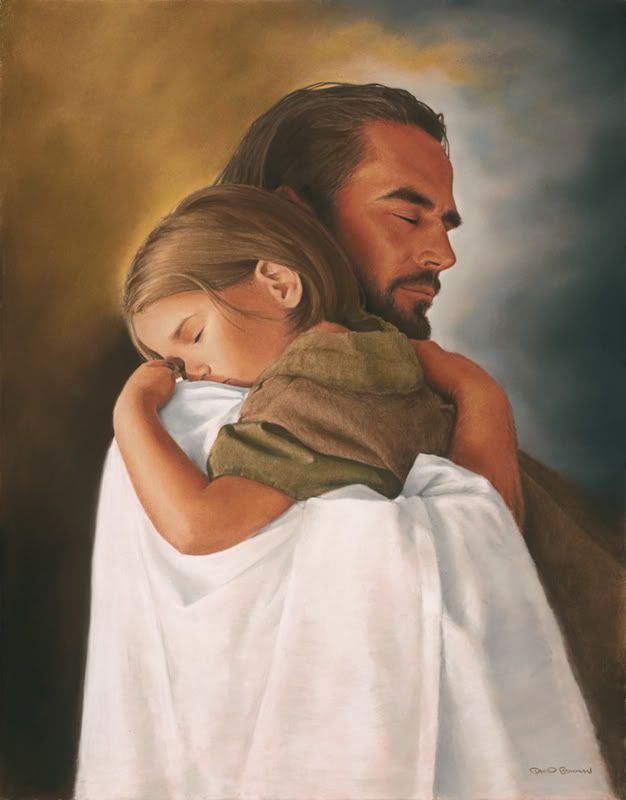 A year ago yesterday 21 Coptic* Christians were executed by Islamic State terrorists in Libya, North Africa. Apparently these men were murdered because ISIS considered them “infidels”—that is, simply because they were believers in Jesus Christ. Christians in Libya.
A year ago yesterday 21 Coptic* Christians were executed by Islamic State terrorists in Libya, North Africa. Apparently these men were murdered because ISIS considered them “infidels”—that is, simply because they were believers in Jesus Christ. Christians in Libya.

Similar violence occurs daily for Christians in places like Libya, Iraq and Syria.
Reading about this, I discovered a remarkable, inspirational fact in an Opinion column in “The Wall Street Journal” of February 12th. The column was written by Bishop Demetrios of Mokissos, the chancellor of the Greek Orthodox Metropolis of Chicago.
“The 21 men executed that day were itinerant tradesman working on a construction job. All were native Egyptians but one, a young African man whose identity is uncertain—reports of his name vary, and was described as coming from Chad or Ghana. But the power of his example is unshakable. The executioners demanded that each hostage identify his religious allegiance. Given the opportunity to deny their faith, under threat of death, the Egyptians declared their faith in Jesus. Steadfast in their belief even in the face of evil, each was beheaded.
“Their compatriot was not a Christian when captured, apparently, but when challenged by the terrorists to declare his faith, he reportedly replied: ‘Their God is my God.’ In that moment before his death, he became a Christian. The ISIS murderers seek to demoralize Christians with acts like the slaughter on the Libyan beach. Instead they stir our wonder at the courage and devotion inspired by God’s love.”
The nameless victim’s courage almost takes my breath away. And it raises questions. How did this African unbeliever happen to be captured by ISIS? Did he work with some of the Egyptian Christians? Had he seen something of Jesus in them that attracted him to the faith? Why didn’t he try to save himself by arguing that he didn’t belong to the group, maybe even that he was Muslim? What moved him to defiantly, devotedly, daringly declare, “Their God is my God”?
Whatever the answers, whatever the details of the deadly drama that day, the sovereign grace of our loving God was poured out into his heart.
I’m reminded of Ruth. Her husband and her father-in-law had died in Moab. Naomi was mournfully returning to Israel. Ruth said to her . . .
“Do not urge me to leave you or to return from following you,
For where you go I will go . . .
Your people shall be my people,
and your God my God.”
(Ruth 1:16).
Though grievous, Ruth’s circumstances were not life-and-death. How much more fearlessness did it take for this African to make such a confession!
I’m also reminded of the thief on the cross next to Jesus. One thief mocked Jesus. The other said . . .
” . . . we are receiving the reward of our deeds;
but this man has done nothing wrong.”
(Luke 23:41).
Then he turned toward the man on the middle cross . . .
“Jesus, remember me when you come into your kingdom.”
(Luke 23:42).
And Jesus replied . . .
“Truly, I say to you, today you will be with me in Paradise.”
(Luke 23:43).
One year ago yesterday that brave African man left Libya’s blood-soaked beach and was instantly with Jesus in Paradise.
* * * * *
I find myself wondering what I would have said. Suppose I was an Egyptian Coptic Christian. Would I have denied my Lord to save my life? Or would I have been devoted to the point of death? But suppose I was that African. To ISIS I would have been an “infidel” only by association. Would I have denied their God? Or would I have had the courageous conviction to proclaim his words, “Their God is my God”?
Such a horror seems other world. We should remember: people in the U.S. have already died at the hand of a terrorist because they proclaimed allegiance to Jesus. These “fiery trials” aren’t limited to the Middle East. They are here. Rarely, thank God. But they are here. And only if our head’s in the sand will we presume more of them won’t be coming.
As I write this, a brother or sister of mine in Christ is being persecuted somewhere in the world, maybe threatened with death. In fact, Bishop Demetrios of Mokissos titled his “Wall Street Journal” article . . .
ISIS Is Guilty of Anti-Christian Genocide.
He complained that the U.S. and the UN have barely even mentioned it, let alone tried to do anything about it. Our fellow-believers in Jesus are being systematically exterminated. (Yes, it’s that big.) Their only “crime”? Faith in Jesus.
God won’t let us forget . . .
“Remember those who are in prison,
as though in prison with them,
and [remember] those who are mistreated,
since you also are in the body.”
(Hebrews 13:3).
Jesus, You were rejected, beaten and crucified for us.
Now some of us who are Yours are being treated as You were.
Protect the persecuted from the evil one.
Give them grace and faith and courage to stand strong in the evil day.
Thank You for these 21 Coptic Christians who refused to deny You.
Thank You for this one African man who proclaimed allegiance to You,
knowing in the very next second it would cost him his life.
May their examples inspire us.
May they move us from indifference to life-sacrificing devotion.
May Your church in America be given grace to wake from apathy
and to put on the full armor of God for the fight.
For the sake of Your sovereign name, I pray.
Amen.
*The Coptic Orthodox Church of Alexandria is the largest Christian Church in Egypt, and also the largest in the Middle East overall. According to tradition, the Church was established by Saint Mark, an apostle and evangelist, in the middle of the 1st century (approximately AD 42). (Eusebius of Caesarea, the author of Ecclesiastical History in the 4th century, states that Saint Mark came to Egypt in the first or third year of the reign of Emperor Claudius, i.e. 41 or 43 A.D. “Two Thousand years of Coptic Christianity” Otto F. A. Meinardus p28.)










Recent Comments